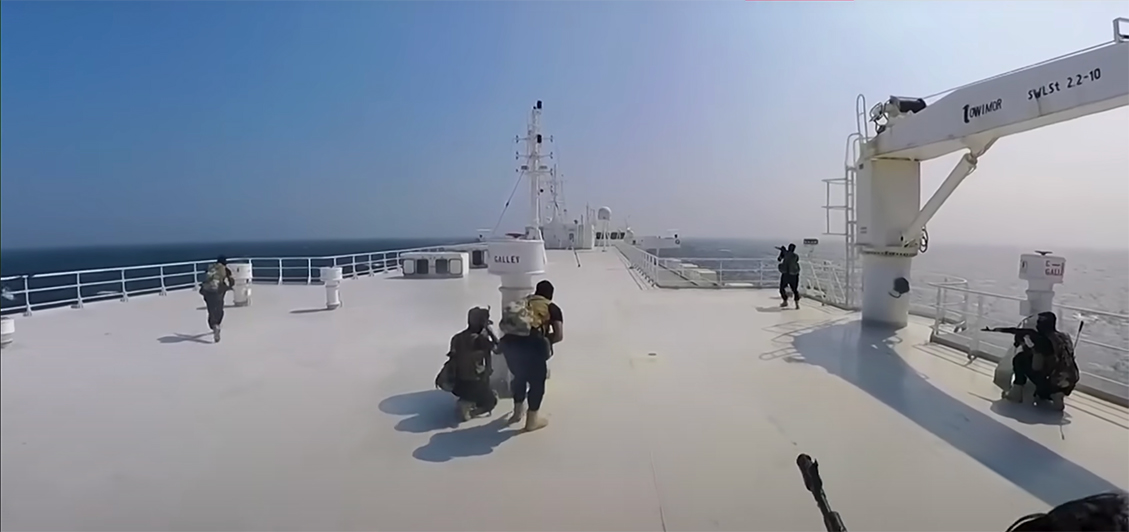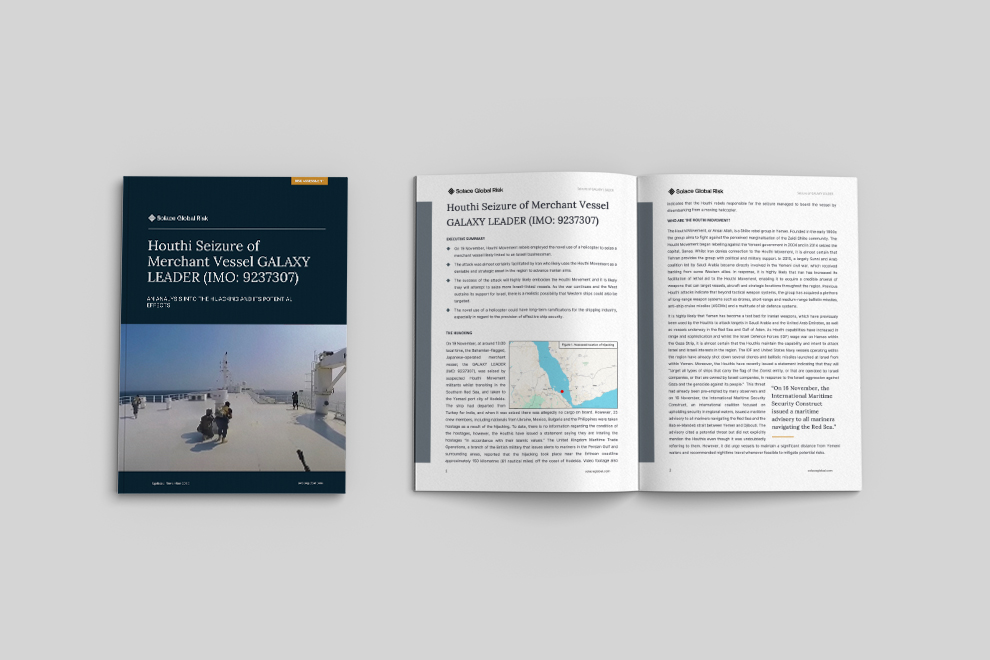Evacuations from High-Risk Locations Call +44 (0)1202 308810 or Contact Us →
Houthi Seizure of Merchant Vessel Galaxy Leader

The Galaxy Leader and the Growing Threat to Maritime Security
In a brazen incident on 19 November, the Galaxy Leader, a Bahamian-flagged and Japanese-operated merchant vessel (IMO: 9237307), fell victim to suspected Houthi Movement militants in the Southern Red Sea.
Seized while en route from Turkey to India, the vessel, reportedly empty at the time, was forcibly taken to the Yemeni port city of Hodeida. The gravity of the situation intensified as 25 crew members, hailing from Ukraine, Mexico, Bulgaria, and the Philippines, were held hostage following the hijacking.
As the international community awaits updates on the hostages’ condition, the Houthi statement assures treatment “in accordance with their Islamic values.” The United Kingdom Maritime Trade Operations disclosed that the hijacking occurred approximately 150 kilometres off the Eritrean coastline, near Hodeida, as documented in video footage revealing the audacious boarding of the vessel by Houthi rebels descending from a moving helicopter.
This harrowing incident underscores the evolving challenges faced by maritime security in the region.
Houthi Intelligence and the Red Sea’s Hidden Threats
The Galaxy Leader’s deviation from standard maritime practices became evident as it disabled its Automatic Identification System (AIS) on November 18, just before entering the Southern Red Sea. Such a maneuver, non-compliant with the United Nations Convention on the Law of the Sea (UNCLOS), is generally avoided due to safety concerns. However, in this instance, it is strongly suggested that the vessel opted for AIS shutdown out of fear, specifically to mitigate the risk of being targeted due to its connections with Israel.
The Houthi rebels’ ability to identify, track, and target a vessel without active AIS transmission raises concerns about their sophisticated intelligence, surveillance, and reconnaissance (ISR) capabilities. This implies either an elevated Houthi ISR capacity or potential real-time intelligence sharing with Iran.
Notably, Iran maintains a constant presence in the Red Sea with merchant vessels like the BEHSHAD (IMO: 9167289), likely serving as an intelligence-gathering platform. Positioned between Eritrea and Yemen, the BEHSHAD may function as a forward base for Iran’s IRGCN, equipped with ISR assets such as electronic surveillance systems or drones, facilitating the identification and tracking of vessels like the Galaxy Leader. This information is then likely relayed to the Houthis for strategic sea ambushes, even beyond the range of the Houthi’s own ISR capabilities.
In this report:
- The Hijacking
- Who are the Houthi Movement?
- Analysis of the Attack
- Short-Term Ramifications
- Long-Term Ramifications

Continued in full report…